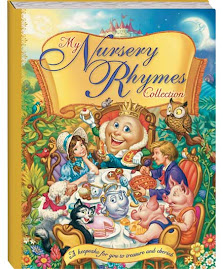
So my last post basically talked about how we were being sent to the "principals office". It was sort of, but more or less the Director was also a behavioral coach in which she had some really great ideas on how to curtail the biting, hitting and pulling hair bit. I have read COUNTLESS articles, talked to my pediatricians and while the behavioral coach did touch on some of the same things my husband and I have read about/talked about with our pediatrician, she did come up with some other great ideas that I wanted to share with you all.
1. Pay attention to the victim first then the toddler. They will still remember that the did something not appropriate for the thirty seconds you pay attention to the victim. It also helps if you put your back to instigator of the bite/hit or hair puller because they are not getting the attention that they want from you but to the person that they hurt. Toddlers do not like that.
2. Use words like "gentle" or "nice" when your toddler is acting out. Show them rather it is a friend, animal or yourself with actions on how to be gentle or nice by demonstrating to them what "gentle" or "nice" is.
3. A new piece of advice for me is use the words "gentle" or "nice" with other things other then when your toddler acts out. For instance if your toddler slams his/her sippy cup on the high chair after drinking remind your toddler to put their cup down "gently" or "nicely".
4. Use time out. If your usual timeout spot isn't working(they don't want to stay put) and if your toddler still has a crib then put them in it for a time out. I was weary of this because I thought I didn't want to associate my kids sleeping place with a timeout place. The behavioral coach assured me that they don't connect the two because we act/say different things when it is night time vs. when your child is naughty. She said no matter where the time out is (a dining room chair, a corner, etc.,) your child still goes to those areas and doesn't always associate those spots as being bad spots.
5. Do some redirecting. If you see your toddler about to act out then redirect them. Sometimes we can see their little wheels spinning in their head and know they are about to do something. Get a toy out or a book and read to them. They may be frustrated, angry or a little confused with a friend being around but you telling them its okay makes it okay.
We have been following up a lot on these simple suggestions and it has helped. Is my toddler still acting out? Yes, but I am seeing improvement. For instance the other day I knew he wanted to go and pet one of my dogs but I knew that he was going to be less then gentle, so I said the words "gentle" and he lowered his little arm and pet the dog nicely. Its a work in progress but he's getting there slowly but surely. I am just glad I finally am seeing some results.







No comments:
Post a Comment